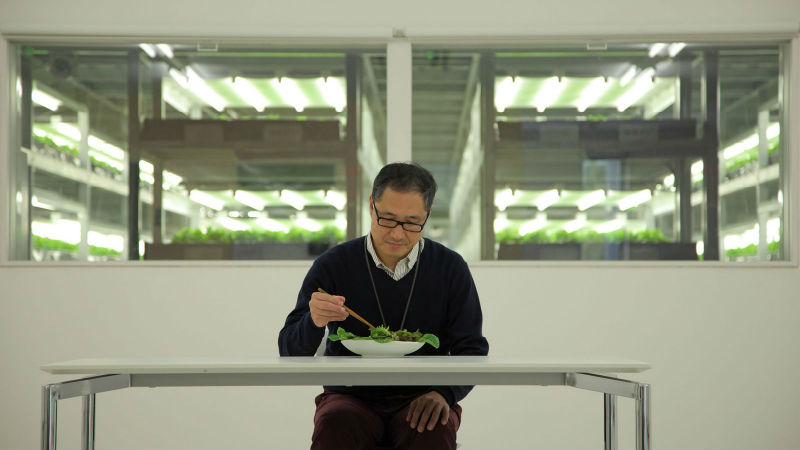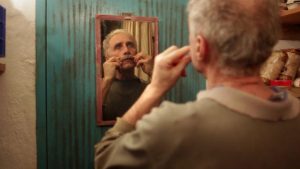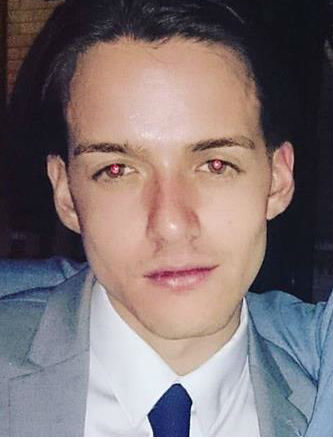




In an ever-changing world, the documentary film helps us comprehend things greater than our simple daily lives. Owing a debt to the pioneering work Nanook of the North (Robert J. Flaherty, 1922), Walk this Way follow in the footsteps of that film in delivering cutting-edge documentaries about topics that really matter to humanity.
Partnering with DMovies this year, The Film Agency, in association with Under The Milky Way, are combining forces again in the Docs from around the World Collection. A means of this, all parties plan to shine light upon films from across the globe which might have escaped audiences upon their initial release. All from a very European perspective (all films are co-productions from the Old Continent).
By using the power of the medium, as well as VoD, DMovies, The Film Agency and Under The Milky Way seek to support true independent filmmaking. In our shared targets, we sat down with Walk this Way Coordinator Nolwenn Luca to discuss this particular collection further.

DMovies – Why documentaries? Are people more likely to watch docs on VoD than the cinema? Is this an opportunity to catch the hidden gems of European documentary-making?
Nolwenn Luca – The Docs from around the World Collection take the main stage, inviting the audience to travel around the world and discover how complex and rich current societies are. The documentary is the place of new interrogations of the man by the man. Not to establish certainties but to reformulate on the scale of human microcosms the essential questions of life.
Walk this Way defends the diversity of European documentary works. The public thanks to the programme have the chance to have access to films that they would not have been able to discover otherwise if they were not available in VoD. The idea is to give a second chance to the movies to meet their audience. If the film has not had the opportunity to have a theatrical release in a country we propose it in VoD as an alternative. In recent years, the VoD offer for documentaries has grown considerably, giving viewers a wide choice to watch quality movies from home.
DM – What is it that these films have in common? Perhaps a desire to reveal the dirty truth, to deep-dive into controversial topics, etc, or something along the lines?
NL – The Collection will take the public through intense investigations from characters going around the world to find answers. Whether they address our love of nature and art, our fascination for criminal minds or our eating habits, these movies will definitely give to the audience food for thought. These films tackle fascinating and relevant thematic with broad interest and are therefore marketable on VoD to several niches.

DM – Can you please tell us a little bit about the curatorship? Roughly how many docs are made for cinema each year in Europe, and how many did you have access to? Any nice figures to give the initiative a grounded aspect!
NL– The documentary is a format that is growing rapidly. Documentary production in Europe has almost doubled over the 2015-2016 period, reaching 698 films in 2016, or about a third of the films of the year in Europe. On average over the period 2007-2016, documentary films represent 1.4% tickets to all genres. In general, feature-length documentaries have a lifetime in room superior to that of all the films.
Documentary is a genre that can easily reach a large audience beyond their country of origin. In general terms, documentaries perform relatively well on international VoD distribution channels partly because they do not request a high level of marketing and promotional expenditure to find their audiences. Already 26 documentaries released in VoD around the world since 2015 with Walk this Way.
.
1. 10 Billion (Valentin Thurn, 2015):
What will happen when the food runs out of food? Well, in his 2015 documentary Valentin Thurn places this very notion front and centre!
Exploring the scientific, agricultural and environmental ways we can prevent global food shortages, all due to global warming, it’s not a feature filled with bias but educated solutions to an impending world problem. Globe jumping from India to England then Germany, the multifaceted nature of its tone makes the issues it is dealing with a tangible reality for the viewer.
.
2. A Symphony of Summits: The Alps from Above (Peter Bardehle and Sebastian Lindemann, 2016):
Part of Europe’s natural beauty, The Alps are towering force over every country they touch. Approaching the scope of the natural phenomena in a highly cinematic manner, directors Peter Bardehle and Sebastian Lindemann deploy a cineflex camera to capture every inch of its beauty in filmic splendour. Telling the tale of its history, socio-political and geographical story, the sweeping shots of the snow-tipped mountains interpolate you into its vistas. Accompanied by the Germanic tones of Emily Clarke-Brandt, man and nature are combined into one form.
.
3. The Key to Dali (David Fernández, 2016):
This Spanish documentary explores Tomeu L’Amo’s maverick purchase of surrealist artist, Salvador Dali’s, first work for a cut-price 25,000 Spanish pesetas in 1988 (£132 in today’s money). Scratching away at the persona of L’Amo, scenes from the documentary allude towards a recent trend of re-creating history or pastness through a post-modern reimagination. Though the elaborate nature of the man could shadow the work, what emerges is a contemporary discussion on elitism, to which is unearthed in many aspects of society. Unlike the recent retelling of the life of Van Gough in Loving Vincent (Dorota Kobiela and Hugh Welchman, 2017) it is undeniable that The Key to Dali is grounded in the real world, opening pathways for art fans or not into the world of painting.
.
4. Profilers: Gaze into the Abyss (Barbara Eder, 2015):
Adopting the same global view as 10 Billion (Valentin Thurn, 2015), Barbara Eder’s hard-hitting work on the men and women whose job it is to investigate killers does not any soft punches. Intertextually referencing The Silence Of The Lambs, (Jonathan Demme, 1991) in numerous conversations, the grotesque nature of the classic is expressed as a means of the verbal descriptions. Not venturing into sadistic footage of murders etc, it holds respect for the victims. A natural intuition, we as humans constantly seek to explain the un-explainable and Eder’s film elicits this notion poignantly..
.
5. Free Lunch Society (Christian Tod, 2017):
What would you do if your income were taken care of? Just a few years ago, an unconditional basic income was considered a pipe dream. Today, this utopia is more imaginable than ever before – intense discussions are taking place in all political and scientific camps. Free Lunch Society provides background information about this idea and searches for explanations, possibilities and experiences regarding its implementation.
.
17-year-old Kevin, sentenced for violent behaviour, is just let out of prison. To start anew, he moves in with his aunt and her family and begins an apprenticeship at her store. Quickly he adapts to his new home and gets along well with his cousin Sammy, in his last year of high school. Through Sammy and his friends, Kevin meets John. Upon discovering John’s unbearable situation with his mother, Kevin feels the urge to help his new friend. One evening fate intervenes and questions of betrayal, trust and loyalty start to direct their daily lives more than ever.
.
7. Mellow Mud (Renars Vimba, 2016):
Loneliness, disillusionment and the experience of first love reveal the character of Raya, a 17-year-old living in rural Latvia with her grandmother and her little brother Robis. A staggering turn of events shakes up their lives, and the young girl must come to decisions that even a grown woman would find difficult to make.
.
8. Quiet Bliss (Edoardo Winspeare, 2014):
Three generations of a family have to move back to their picturesque coastal town of their family’s origin and survive off the family farm after their family company goes bankrupt. A feel-good drama about possibilities after a crisis.
.
9. Fair Play (Andrea Sedlácková, 2014):
Set in Czechoslovakia in the 1980, young and talented sprinter Anna (Judit Bárdos) is selected for the national team and starts training to qualify for the Olympic Games. As a part of the preparation she is placed in a secret “medical programme” where they begin dopeing her with anabolic steroids. Her performance improves, but after she collapses at training, she learns the truth. Anna decides to continue training without the steroids even though her mother (Anna Geislerova) is worried that she won’t be able to keep up with other athletes and might not qualify for the Olympics, which she sees as the only chance for her daughter to escape from behind the Iron Curtain. After Anna ends last in the indoor race, her mother informs the coach (Roman Luknar) that Anna is no longer using steroids. Together they decide to inject steroids to Anna in secret, pretending it’s nothing but harmless vitamins.
.
10. God Willing (Edoardo Maria Falcone, 2015):
A young man’s decision to become a priest affects his whole family, especially his father.
.
11. I Can Quit Whenever I Want (Sydney Sibilia, 2014):
A university researcher is fired because of the cuts to university. To earn a living he decides to produce drugs recruiting his former colleagues, who despite their skills are living at the margins of society.
.
12. One Wild Moment (Jean-François Richet, 2015):
Two friends bring their daughters with them on a beach vacation and find themselves in an awkward situation. A remake of In a Wild Moment (Claude Berri, 1977).
.
14. Heart of Glass (Jérôme de Gerlache, 2016):
Heart of Glass is a journey. A road trip through several countries on two continents in pursuit of a story. The story of a young glass blower with a singular talent: Jeremy Maxwell Wintrebert. The film follows him in his daily life working in the studio and on the road. Jeremy recounts growing up in Africa, where he drew inspiration for his first pieces. He speaks of his family of Franco-American origin, difficult events he faced, the challenges of returning to Europe. He speaks of his first encounter with glass at age 19. The first time he saw the hot glass moving at the end of a blow pipe was his seminal moment. The way the glass, fluid, delicate and mysterious, danced that day has forever changed him. The film reveals how passion can undo a tragic fate and is sadly not a Blondie documentary.
.
14. Step Up to the Plate (Paul Lacoste, 2012):
In 2009, the three-Michelin-stars French chef Michel Bras decides to hand his restaurant over to his son Sebastien. Between Jonathan Nossiter’s Mondovino (2004) and Raymond Depardon’s La Vie Moderne (2008), this documentary draws a moving and joyful portrait of this outstanding family devoted to the haute cuisine for three generations…
.
15. Santa Claus (Alexandre Coffre, 2014):
One night, a burglar in a Santa Claus costume is surprised by Victor, a young boy who believes he is the real Santa Claus. Victor then follows him, and they embark on an unexpected adventure that will change their lives.











